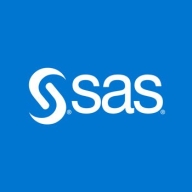

SAS Access and Informatica Intelligent Data Management Cloud compete in data management. While SAS Access leads in data integration, IDMC offers usability and advanced features.
Features: SAS Access is known for its data analytics, integration, and reporting capabilities with support for many databases. IDMC features a cloud-based architecture, scalability, and data governance, providing centralized control for a seamless experience.
Ease of Deployment and Customer Service: SAS Access provides easy installation and connectivity, benefiting existing IT infrastructures. IDMC's cloud-centric deployment supports scalability and updates with minimal downtime, complemented by extensive documentation and community support.
Pricing and ROI: SAS Access requires a significant initial investment with potential high returns via its analytics. IDMC's flexible pricing model aligns with cloud costs, offering better ROI through reduced infrastructure costs and increased agility.
| Product | Market Share (%) |
|---|---|
| Informatica Intelligent Data Management Cloud (IDMC) | 3.7% |
| SAS Access | 0.6% |
| Other | 95.7% |


| Company Size | Count |
|---|---|
| Small Business | 51 |
| Midsize Enterprise | 27 |
| Large Enterprise | 153 |
Informatica Intelligent Data Management Cloud (IDMC) offers seamless integration of master data management, data quality, and data integration with a cloud-native architecture supporting multiple data management styles, optimizing data governance through metadata management.
IDMC enhances data synchronization and mapping tasks, utilizing a broad range of connectors to interact efficiently with data sources. Its precise address validation via AddressDoctor and intuitive navigation bolster user empowerment, delivering agility, scalability, and security in data governance. Despite its strengths, areas like ease of use, SAP integration, and reporting could benefit from enhancements. Connectivity issues and workflow complexities are noted, needing improvements in performance, support, and licensing cost. Users demand expanded ETL capabilities, real-time processing, and broader data source support to address growing data needs.
What are the key features of IDMC?In industries such as banking, healthcare, and telecom, IDMC is implemented for data integration, cloud migration, and enhancing data quality. Its capabilities are crucial for metadata management, lineage tracking, and real-time processing, ensuring high data quality and streamlined operations.
We monitor all Data Integration reviews to prevent fraudulent reviews and keep review quality high. We do not post reviews by company employees or direct competitors. We validate each review for authenticity via cross-reference with LinkedIn, and personal follow-up with the reviewer when necessary.